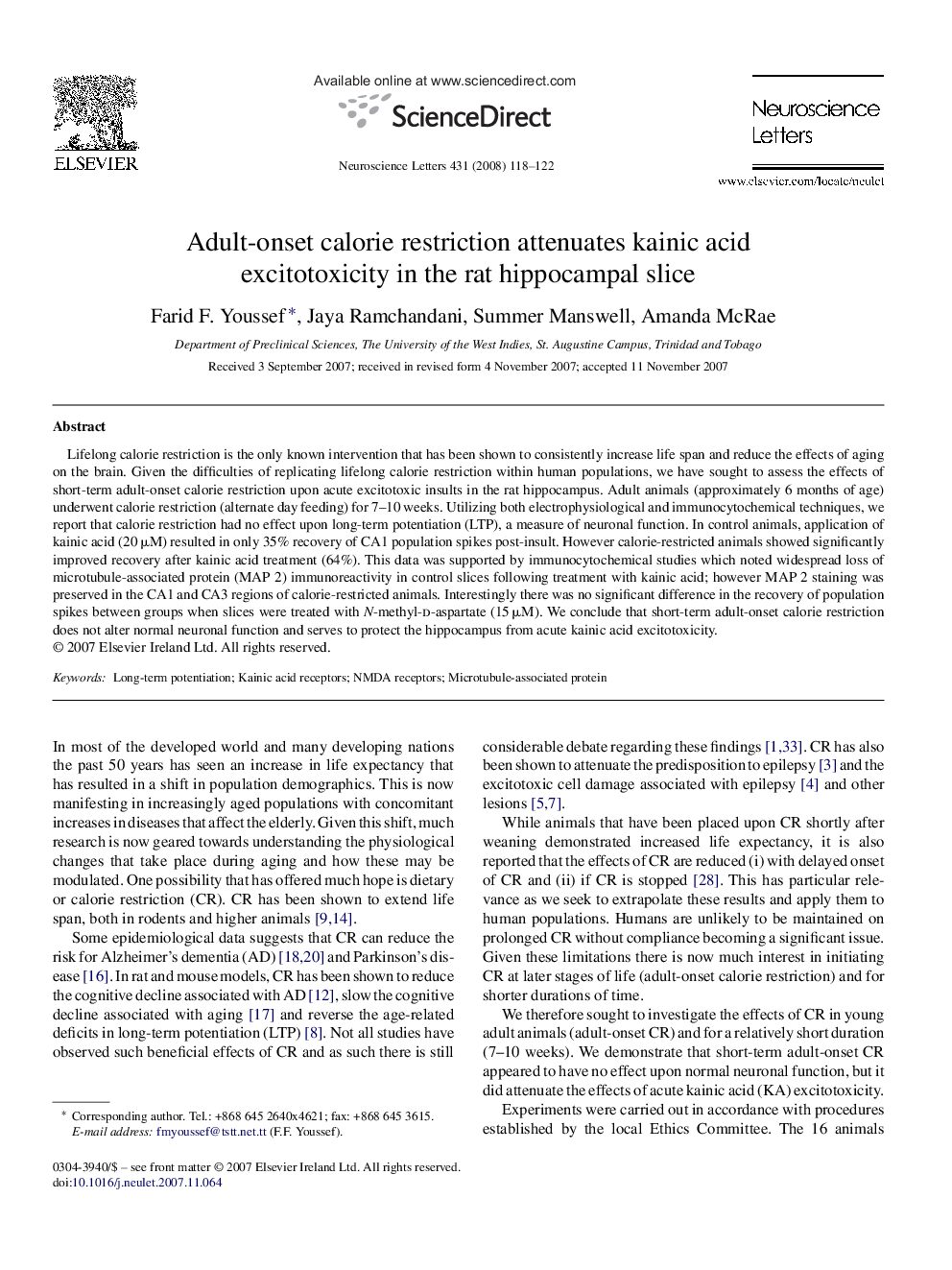| Article ID | Journal | Published Year | Pages | File Type |
|---|---|---|---|---|
| 4348797 | Neuroscience Letters | 2008 | 5 Pages |
Lifelong calorie restriction is the only known intervention that has been shown to consistently increase life span and reduce the effects of aging on the brain. Given the difficulties of replicating lifelong calorie restriction within human populations, we have sought to assess the effects of short-term adult-onset calorie restriction upon acute excitotoxic insults in the rat hippocampus. Adult animals (approximately 6 months of age) underwent calorie restriction (alternate day feeding) for 7–10 weeks. Utilizing both electrophysiological and immunocytochemical techniques, we report that calorie restriction had no effect upon long-term potentiation (LTP), a measure of neuronal function. In control animals, application of kainic acid (20 μM) resulted in only 35% recovery of CA1 population spikes post-insult. However calorie-restricted animals showed significantly improved recovery after kainic acid treatment (64%). This data was supported by immunocytochemical studies which noted widespread loss of microtubule-associated protein (MAP 2) immunoreactivity in control slices following treatment with kainic acid; however MAP 2 staining was preserved in the CA1 and CA3 regions of calorie-restricted animals. Interestingly there was no significant difference in the recovery of population spikes between groups when slices were treated with N-methyl-d-aspartate (15 μM). We conclude that short-term adult-onset calorie restriction does not alter normal neuronal function and serves to protect the hippocampus from acute kainic acid excitotoxicity.
